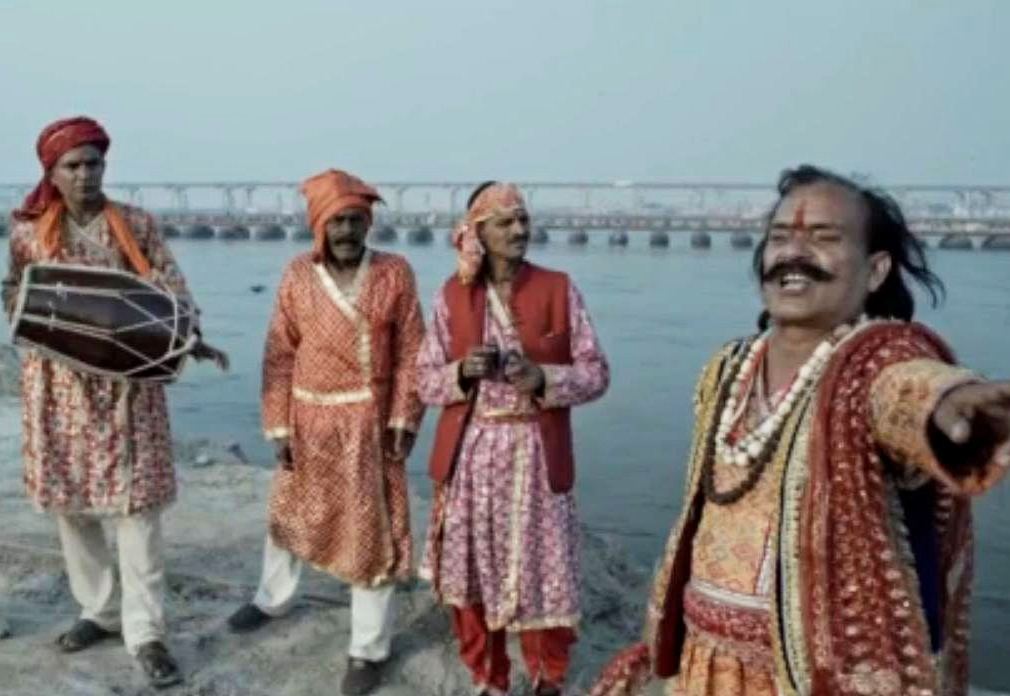In “Shoebox,” playing at this year’s MAMI, Mampu (Amrita Bagchi) returns from Pune to her hometown in Allahabad (Re-christened as Prayagraj by State government under the guise of ‘development plans,’ amidst mixed reactions from the residents who think this move is unnecessary). Her widowed father’s health as well as his livelihood—a small cinema hall—is in shambles. The young woman soon has to return to university to submit her doctorate thesis. Before she leaves, she chooses to mend her estranged relationship with her often-distant and asthmatic father; much to her chagrin, he only seems to care about protecting his crumbling cinema hall from land grabbing politicians who disguise their greed as development.
Strained Relationships Threaten; ‘Shoebox’s’ Deeper Treasure
Mampu is also worried about the lingering threat posed to her niece and uncle’s relationship. She fears it might grow strained, much like her own with her father. While she has lived and breathed cinema all her growing years—even building a miniature film projector from her mother’s old shoebox with the help of childhood friend Kaustubh—she also doesn’t want history to repeat itself. Faced with the dilemma of preserving her father’s beloved cinema hall or giving in to the changing times, Mampu is ultimately forced to undertake difficult and unjust choices.
The troubled but occasionally poignant father-daughter relationship in “Shoebox” mirrors the one shared by Deepika Padukone’s and Amitabh Bachchan’s characters in the 2015 road trip movie “Piku” (interestingly “Shoebox” too features an appearance of sorts by Bachchan. He was born in Allahabad; his classic Bollywood movies are the beating heart of Mampu’s father’s once flourishing cinema hall. Just like the former “Piku,” “Shoebox” also succeeds at dissecting various relationships; these range from familial ones to faithful friendships that blossom along the way. Moreover, the film does so in a manner that feels visceral, authentic, and bittersweet to the viewer.
Amrita Bagchi is a Delight as Mampu
While the supporting cast delivers formidable performances, Amrita Bagchi is the crown jewel of this movie as Mampu. The scene featuring Mampu discussing her uncle’s plans to temporarily shift his daughter (her young niece) to a boarding school—while drawing parallels to her own miserable childhood in particular—is highly memorable and a true testament to Bagchi’s acting ability.

The writing by Faraz Ali and Noopur Sinha—and Mahesh Aney’s cinematography—both feel crisp; and while the pacing is occasionally slow, it is never excruciatingly long or sluggish to sit through. While bereft of a background score, the film features a folk song sung by musicians upon the banks of the Ganges. The lyrics highlight the wrath of Mother Nature upon those who continue to dump their waste, or build upon or damage her beauty and resources. Warnings of harming the Earth for future generations is a running theme in the movie.
All in all, “Shoebox” is a must-watch for the lessons it imparts. It’s an anthem to cherishing those coveted and valuable moments that could easily be snatched from us at any minute; and also for its ability in conveying hard-hitting social commentary on dirty politics. It has much to say about the negative impact left on an ever changing world—one dominated by commercialisation and gentrification.
Continue to follow The Movie Buff for more MAMI coverage.
Support the Site: Consider becoming a sponsor to unlock exclusive, member-only content and help support The Movie Buff!


